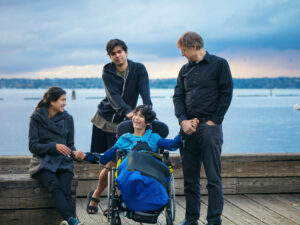Choices, choices!
Respite or Companion? Why is this so complicated?
No one ever said that understanding the rules and words would be easy. One of the most frequent confusions is the difference between respite and companion services. They look alike for the most part, right? But they are defined by who they support is for and when/how it happens. So here are the differences based on bottom-line need:
- Companion is a service that is typically routine and regular. For example, it could be a Monday-Friday thing to provide “down-time” supervision after getting home from day activities and until natural supports get home from work. Or it could be a routine Saturday or Sunday thing to allow natural supports to do things that the person receiving supports either cannot or does not want to do or to allow a dedicated time for another family member such as siblings, sporting events, or special time.
- Respite, on the other hand, provides a break or by definition, “relief” for a natural support caregiver. This is for non-routine needs that happen in everyone’s life. Some examples might be when a caregiver is attending a special event, taking a needed vacation, or tending to acute health issues that take them out of the daily routine.
This explanation was the easy part. The harder variable to manage is the limits for each of the services.
- Companion falls into the 16 hours daily combined limit for Home and Community Habilitation, Community Participation Support, and Companion. This limit is across these three services and across the providers who may be supporting the individual on any given day. It is assumed that the needs of most individuals can be met with 16 or fewer hours a day of support and that most individuals do not need assistance while sleeping. For those with higher levels of needs, there is a process to request an exception or “variance.” Your Supports Coordinator can make this request based on your situation and circumstance and need.
- Respite also has annual service limits for both temporary and overnight respite. To complicate it further, the limits are different based on which waiver you are enrolled in.
ODP Consolidated Waiver: 120 hours or 480 15-minute units of Temporary Respite and 30 Overnight Respite days
ODP Community Living Waiver and Person Family Directed Supports Waiver: 360 hours or 1,440 15-minute units of Temporary Respite and 30 Overnight Respite days
Again there is an exception or “variance” process that can be requested if respite limits have been reached and unforeseen emergency presents. This is also done through your Supports Coordinator.
The bottom line is that your Supports Coordinator should be able to help you figure this out and make the best choices based on your individual situation.






Just want to findout if there any possible sponsorship for PhD studies for an amputee. I would want to pursue PhD studies by research.
vital information needed to move forward